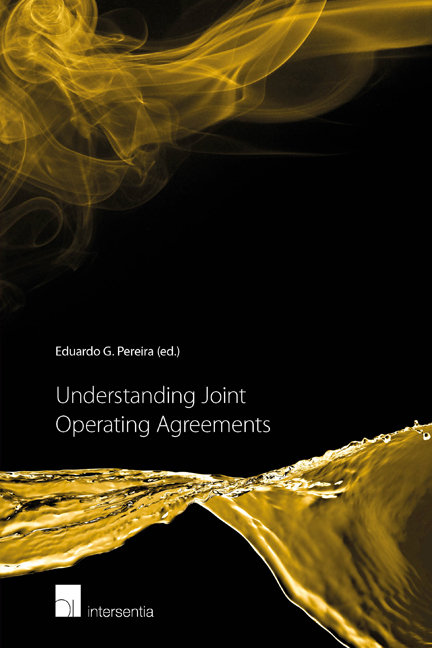Book contents
- Frontmatter
- Contents
- List of Abbreviations
- List of Authors
- Introduction
- PART I CONSIDERATIONS PRIOR TO ENTERING INTO A JOA
- PART II SETTING UP A JOA
- PART II.A GENERAL CONSIDERATIONS
- PART II.B CONTROL OF OPERATIONS AND EXPENDITURES
- 15 Authorising Work and Contracts: How is the North American System Unique?
- 16 Making the Default Mechanism Fair and Enforceable
- 17 The Relationship and Challenges between a Th ird Party Operator, the Joint Operating Company and JOA
- 18 Accounting Procedure: Can the Operator Make a Profit? How Can a Non-Operator Control the Costs of the Consortium?
- 19 Senior Supervisor, Financial Cap and Other Restrictions on the Operator's Liabilities and their Implications
16 - Making the Default Mechanism Fair and Enforceable
from PART II.B - CONTROL OF OPERATIONS AND EXPENDITURES
Published online by Cambridge University Press: 15 December 2017
- Frontmatter
- Contents
- List of Abbreviations
- List of Authors
- Introduction
- PART I CONSIDERATIONS PRIOR TO ENTERING INTO A JOA
- PART II SETTING UP A JOA
- PART II.A GENERAL CONSIDERATIONS
- PART II.B CONTROL OF OPERATIONS AND EXPENDITURES
- 15 Authorising Work and Contracts: How is the North American System Unique?
- 16 Making the Default Mechanism Fair and Enforceable
- 17 The Relationship and Challenges between a Th ird Party Operator, the Joint Operating Company and JOA
- 18 Accounting Procedure: Can the Operator Make a Profit? How Can a Non-Operator Control the Costs of the Consortium?
- 19 Senior Supervisor, Financial Cap and Other Restrictions on the Operator's Liabilities and their Implications
Summary
Despite the apparent magnitude of the term ‘ default ‘, the customary definition of a default in the context of the JOA is limited to apply to a party ‘ s failure to honour its obligation to make payment when due of the amounts which are required by the operator in order to finance the performance of the joint operations.
In this narrow context of a default, the JOA will typically define what constitutes a default by a party and will prescribe a regime (by reference to several forms of remedy) for dealing with that default for as long as it remains unremedied. The forfeiture remedy for a default under the JOA requires particular consideration.
THE CONSEQUENCE OF DEFAULT
The default by a party in making payment when due of its share of a cashcall or an invoice request which has been issued by the operator can have serious consequences. The business of exploring for and producing petroleum cannot simply stop because a party has decided not to pay its share of the costs of those activities, and ultimately a default might even jeopardise the continued existence of the concession.
The inability of a party to meet its share of the cashcalls or invoice requests, and so the concern about what the most appropriate remedy for a party ‘ s default should be, might vary according to when in the lifecycle of the JOA those costs and the particular defaults arise.
During the exploration and appraisal phase of a JOA, there may be a temptation for a party to cease to pay its share of the cashcalls or invoice requests part way through that phase if that party believes that the prospects of finding commercially recoverable deposits of petroleum are not sufficiently compelling.
During the development and production phase, the parties should be able to reap the benefits of producing petroleum and so will arguably be more inclined to fund ongoing development cashcalls or invoice requests (although the point made in the preceding paragraph could apply equally where there are separate exploration and appraisal activities taking place simultaneously during the development and production phase.
- Type
- Chapter
- Information
- Understanding Joint Operating Agreements , pp. 331 - 346Publisher: IntersentiaPrint publication year: 2016

